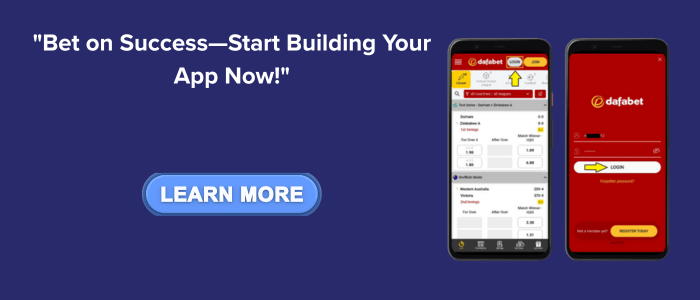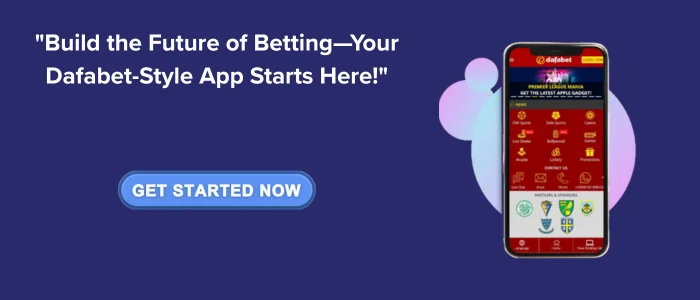In today’s digital age, online betting apps have revolutionized how users engage with sports, casinos, and fantasy gaming. With their global popularity surging, platforms like Dafabet have set industry standards for innovation, reliability, and a seamless user experience. If you’re looking to enter this lucrative market, developing a betting app similar to Dafabet is a strategic move with immense potential.this comprehensive guide will walk you through everything you need to know from essential features and technical architecture to legal compliance and UI/UX principles.
Understanding the Betting App Landscape
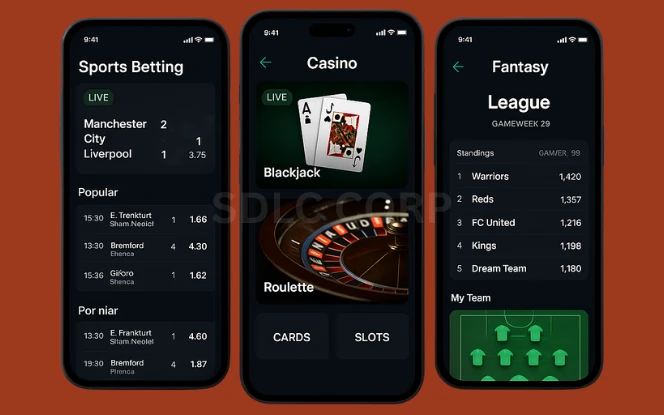
The betting industry is among the most profitable sectors in digital entertainment. Whether it’s sports betting or live casino games, demand continues to grow across mobile platforms. Dafabet has emerged as a leading player by offering:
An intuitive interface
Real-time betting capabilities
A secure and trustworthy environment
Before you begin development, conduct a detailed analysis of successful apps like Dafabet to identify key elements such as their product offerings, target demographics, and technology stacks.
Planning Your Betting App Development Strategy
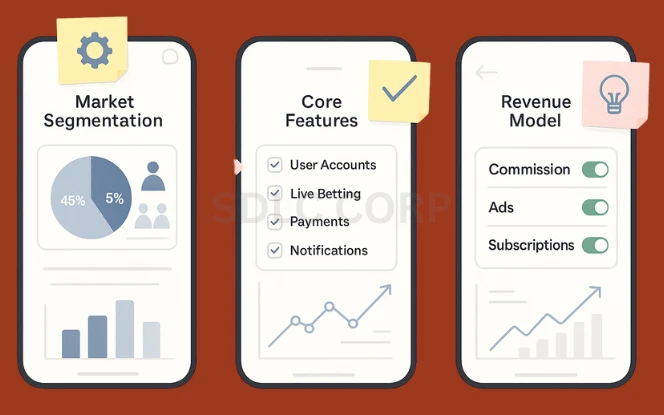
A robust development strategy is the foundation of a successful betting platform. Key steps include:
Market Research
Define your target market—sports fans, casino players, or fantasy gamers. Understanding their behavior helps in designing user-centric features.
Feature Definition
Decide on the core functionalities such as:
Real-time betting
Live match tracking
Integrated payment gateways
Push notifications
User profile management
Secure login mechanisms
Revenue Model
Choose from monetization options like:
Commission-based systems
In-app purchases
Subscription models
Advertisements
Platform Selection
Choose between iOS, Android, or cross-platform development based on your audience reach.
Key Features of a Successful Betting App
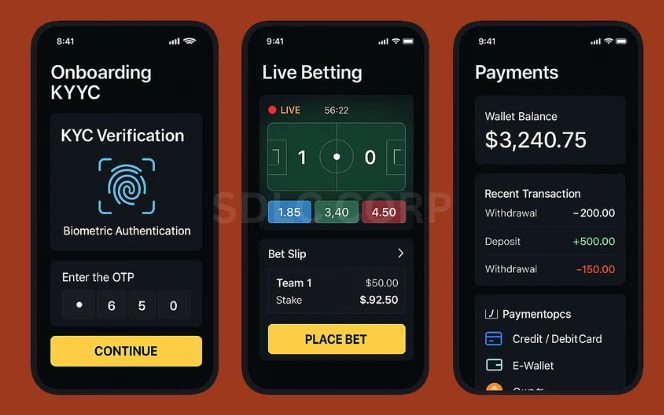
A feature-rich platform is critical to user acquisition and retention. Here are essential features, inspired by Dafabet:
User Registration and Login: Easy sign-up with multi-factor authentication
Live Betting: Real-time odds and match updates
Payment Integration: Support for cards, wallets, and cryptocurrencies
Match Schedules & Live Scores: Real-time updates on games
Bet History & Wallet Management: Comprehensive tracking of user activity
Push Notifications: Real-time alerts for bonuses, promotions, and updates
Customer Support: 24/7 assistance via chat or phone
All features should align with user behavior to ensure a seamless experience.
UI/UX for Betting Apps: Enhancing the User Journey
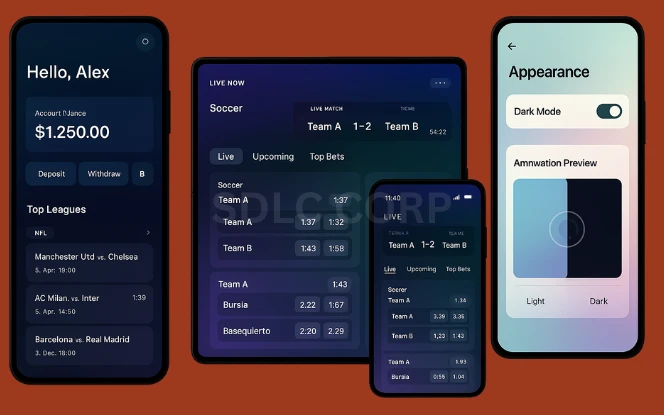
The visual and interactive aspects of your app play a crucial role in user engagement. Focus on the following principles:
Clarity & Simplicity: Ensure easy navigation and intuitive interfaces
Responsiveness: Design for various screen sizes and orientations
Consistency: Maintain a uniform visual language
Performance: Fast loading speeds, especially for live events
Theme Options: Provide light and dark modes for user preference
Technology Stack for Betting App Development
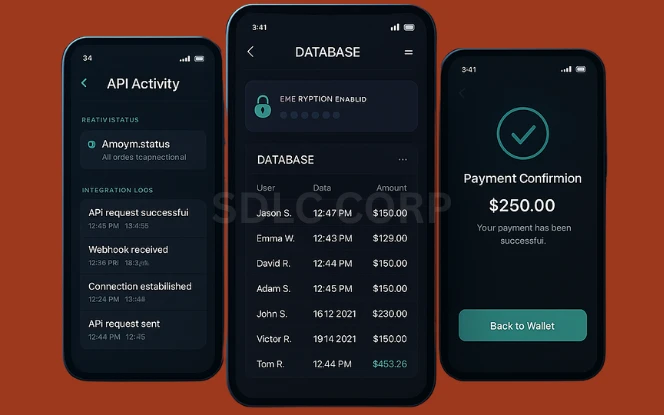
The technology you choose impacts the app’s scalability, performance, and security.
Recommended stack:
- Frontend: React Native or Flutter (cross-platform), Swift (iOS), Kotlin (Android)
- Backend: Node.js or Django
- Database: PostgreSQL or MongoDB
- Payment Gateways: Stripe, Razorpay, PayPal, or crypto integrations
- Live Data: Firebase, WebSockets, or Pusher
Security Measures:
Implement robust security through:
- End-to-end encryption
- Two-factor authentication
- Fraud detection algorithms
Licensing and Legal Compliance
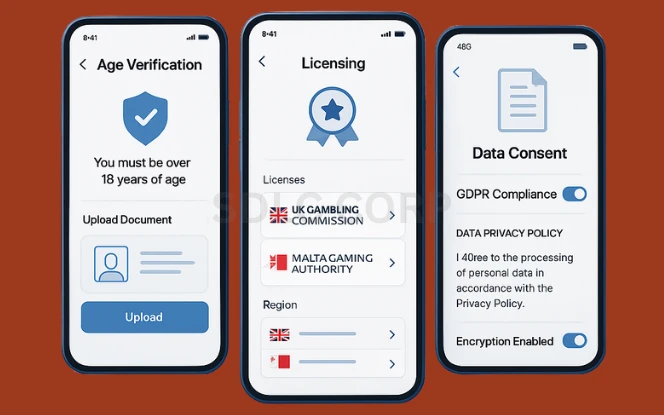
Navigating legal frameworks is often the most challenging part. Key considerations:
- Jurisdictional Laws: Comply with regional betting laws
- Licensing Authorities: Examples include the UK Gambling Commission and Malta Gaming Authority
- Age Verification: Mandatory mechanisms to restrict underage gambling
- Data Protection: Ensure GDPR compliance and strong encryption protocols
Operating without proper licenses can lead to penalties or removal from app stores.
Development Timeline and Phases
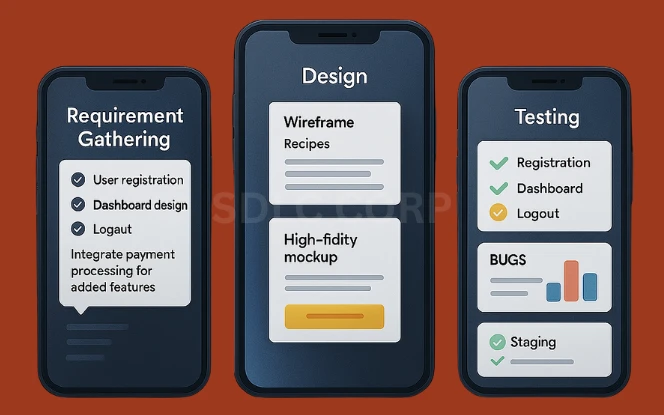
Break your development into manageable stages:
- Requirement Gathering: Define the scope and business model
- Design Phase: Craft UI/UX based on user behavior
- Development Phase: Code the backend and frontend concurrently
- Testing Phase: Conduct unit, integration, and UAT testing
- Launch: Release to app stores
- Post-Launch Support: Regular updates, bug fixes, and feature enhancements
Estimated Timeline: 4–6 months depending on complexity and resources.
Monetization Strategies
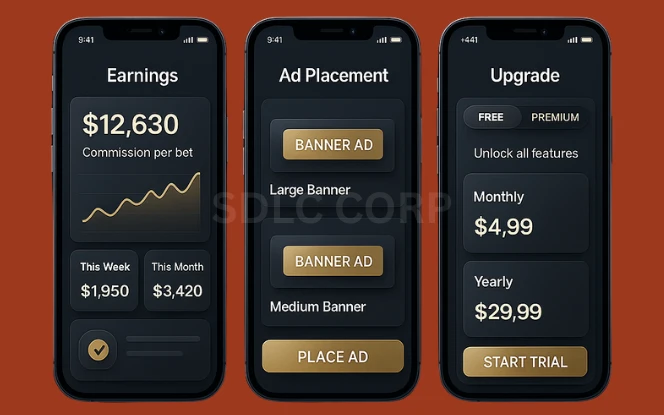
A well-planned monetization model ensures long-term sustainability:
- Commission per Bet: Small fee on each transaction
- In-App Ads: Ads from affiliates or related services
- Premium Features: Offer exclusive content for paid users
- Freemium Model: Basic functionality for free, with premium upgrades
Ensue these align with user trust and licensing laws.
Marketing and User Acquisition
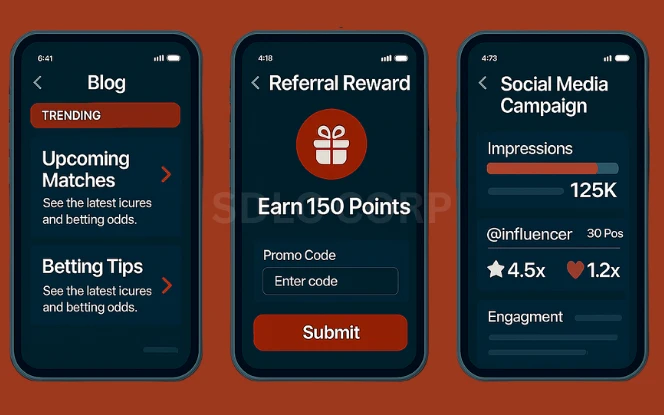
Launching the app is just the start. You need a strong marketing strategy:
- SEO & Content Marketing: Blog about betting tips and platform features
- Social Media Engagement: Run campaigns, polls, and contests
- Referral Programs: Reward users for bringing friends
- Affiliate Marketing: Collaborate with sports influencers and bloggers
Build trust through positive reviews and testimonials.
Challenges in Betting App Development
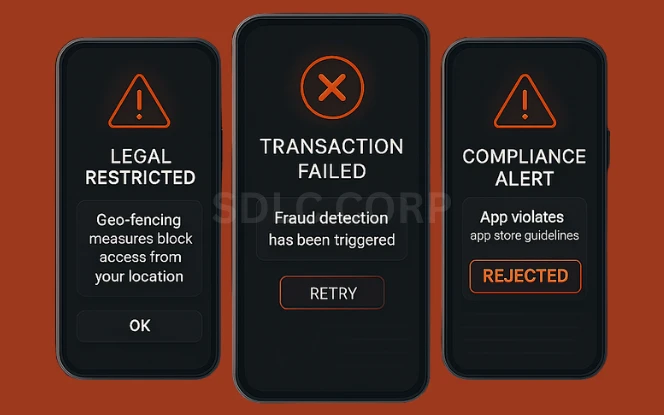
Key hurdles you may face include:
- Legal Barriers: Varying laws across regions
- High Competition: Differentiation is essential
- Trust Issues: Ensure transparency and fairness
- Fraud Risks: Employ real-time fraud detection tools
- App Store Restrictions: Comply with platform-specific gambling policies
Addressing these early helps mitigate risks and enhances success.
Future Trends in Betting App Development

Stay ahead of the curve with these upcoming trends:
- AI & Machine Learning: For personalization and prediction
- AR/VR Betting: Immersive casino and sports experiences
- Cryptocurrency Payments: Anonymous and fast transactions
- Voice-Activated Betting: Hands-free interfaces
- Social Betting Features: Group play, shared bets, and community tips
Conclusion
Developing a betting app like Dafabet is a multifaceted journey involving deep market research, advanced technology, flawless UI/UX, and stringent compliance with legal frameworks. The rewards, however, can be substantial if done right. By ensuring you include essential betting app features, streamline UI/UX for betting app platforms, and understand the nuances of betting app licensing, you pave the way for a product that can truly compete with industry giants. Remember, success in this arena is not just about launching the app—it’s about constant innovation, user satisfaction, and staying ahead of market trends. If you’re ready to enter the world of online betting, make sure your vision is backed by a strong betting app development partner, and a comprehensive strategy that encompasses everything from technology to trust.
Contact Us to kickstart your betting app journey today.
FAQ's
1. Is It Legal to Develop and Operate a Betting App?
Yes, but legality depends on the jurisdiction. Different countries and states have varying laws regulating online betting and gambling. You must obtain the appropriate licenses from local authorities such as the UK Gambling Commission, Malta Gaming Authority, or other regional regulators. Always consult with a legal expert before launching.
2. How Much Does It Cost to Build a Betting App Like Dafabet?
Costs vary based on features, platforms, and complexity. On average, developing a feature-rich betting app can range from $40,000 to $150,000 or more. Factors influencing the cost include design, backend infrastructure, third-party integrations, and compliance requirements.
3. How Long Does It Take to Develop a Betting App?
The average development timeline is 4 to 6 months, including planning, design, development, testing, and deployment. This timeline may extend if the app includes advanced features like live streaming, AI recommendations, or VR-based betting.
4. Which Platform Should I Choose: IOS, Android, or Both?
It’s best to develop for both platforms to maximize reach. You can either develop native apps for iOS (Swift) and Android (Kotlin) or use cross-platform frameworks like Flutter or React Native to reduce cost and development time.
5. What Are the Essential Features of a Betting App Like Dafabet?
Core features include:
- User Registration & KYC
- Live Betting and Odds Updates
- Match Schedules and Real-Time Scores
- Wallet and Transaction Management
- Push Notifications
- In-App Chat or Customer Support
- Multi-currency Payment Gateway
- Responsible Gambling Controls
6. What Technologies Are Best Suited for Developing a Betting App?
Recommended tech stack:
- Frontend: React Native / Flutter, Swift, Kotlin
- Backend: Node.js, Django
- Database: PostgreSQL, MongoDB
- Live Data: Firebase, WebSockets
- Security: 2FA, End-to-End Encryption, Fraud Detection
7. How Do Betting Apps Make Money?
Betting apps monetize through:
- Commissions on bets
- In-app advertisements
- Premium subscriptions or paid features
- Affiliate marketing
- Freemium models with upgrades
8. How Can I Ensure the App is Secure and Trustworthy?
Use strong encryption protocols, two-factor authentication, and implement real-time fraud detection. Compliance with GDPR and data privacy laws is also critical. Transparent algorithms and fair play audits help build user trust.
9. What Licenses Do I Need to Launch a Betting App?
Licenses depend on your target market. Common authorities include:
- UK Gambling Commission (UK)
- Malta Gaming Authority (EU)
- Curacao eGaming
- State-specific licenses in the USA, Canada, etc.
You must also enforce age restrictions and responsible gambling practices.
10. What Are the Main Challenges in Developing a Betting App?
Major challenges include:
- Navigating complex legal regulations
- Ensuring real-time performance and uptime
- Managing user trust and data privacy
- Preventing fraud and abuse
- Competing with established platforms like Dafabet
11. Can I Integrate Cryptocurrency Into the App?
Yes, many modern betting platforms now accept cryptocurrencies like Bitcoin, Ethereum, or USDT. It enhances privacy and simplifies international transactions, but requires careful handling of wallet integration, KYC, and compliance.
12. How Do I Market a Betting App Successfully?
Effective marketing strategies include:
- SEO and blog content on betting tips
- Social media promotions and contests
- Referral and loyalty programs
- Influencer collaborations
- Affiliate marketing with sports websites


